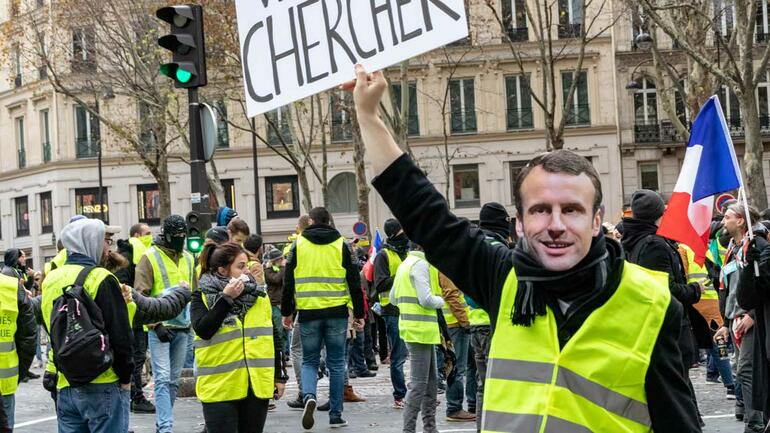Our approach is to observe how features of the political system are reflected even in the small ritual and almost instinctive acts of everyday life.
A political culture consists of the attitudes, habits, perceptions, and symbols that relate to political power. When the political culture supports a political system, it gives stability to that system, for better or worse.
Election denialists in the USA show how democracies depend on a political culture where those who lose elections respect the outcome, as long as there is no credible reason to doubt its authenticity. On the other hand, a government of authoritarian leaders is often supported by a society with authoritarian norms and structures in family, industry, and society, such as is the case in Putin’s Russia.
Studying political culture can contribute to greater realism in relation to for example democracy development in countries without democratic traditions. It will also give a deeper understanding of how important it is to build and defend democracy every day.
By combining culture and politics we draw attention to political units, of which nation states are currently the most important. But different political cultures may also be found within nation states, or they may be found across several states. The emphasis on norms and preconceptions often makes the study of political culture coalesce around patterns with a certain durability, sometimes with a goal of tracking the history of phenomena we see today.
And finally, the concept gives us a key to study individual utterances and acts that can seem inscrutable and irrational to outsiders, by connecting them to a greater whole. “In Norway, people brag about the prime minister being a normal person,” said a French ambassador in Norway in connection with his farewell. “In France this would have been an insult.” Despite France being a republic and Norway being a monarchy, the ideals of equality likely have a stronger position in Norway.
We take a broad definition of the term political culture as our starting point: Views on human dignity, concept of society, view on representation, legal and religious norms, election procedure, free speech, loyalty to the government, forms of socializing, political rhetoric, journalism, and satire. But it will also be relevant to emphasize how the institutional, organizational, and material conditions contribute to form the political culture, while also being a part of said culture. Ceremonial, processions, clothing, and architecture are examples of these dimensions of the political culture.
How do we conduct research?
The basic method for historians is source criticism. There will be great variation in the relevant sources, depending on the historical period and research questions. Journals, letters, speeches, newspaper articles, and instructions for ceremonial will be recurring sources in the study of political culture.
For social scientists and historians, the use of statistics, linguistic analysis, studies of symbolism, and interviews are also relevant methods.
Academic disciplines
The following disciplines are represented in the research group: archeology, history, history of ideas, philosophy, literature, rhetoric, music, human geography, tourism, sociology, and political science.
Publications
Publications of the research group found in Cristin.
Projects:
- Book Project: The Athenian Democracy. An Introduction. (Norwegian)
- Diaspora and Memory in the Viking Age.
- Anglo-Saxon and Continental Influence on the Oldest Norwegian Town and Trade Law. (Norwegian)
- Royal Power, Citizenship, and Town Fellowship in the Norwegian Medieval Cities. (Norwegian)
- The Role of the Queen in Medieval Norwegian History. (Norwegian)
- Cultural Brokers in the Middle Ages.
- The Europeanization of Scandinavia? The Effect of Christianization on the Political Culture – Norms, Laws, Institutions. (Norwegian)
- Medievalism – The Use of the Middle Ages in Modern Times. (Norwegian)
- The Dominions of the Counts in Vestfold, 1671-1821. (Norwegian)
- Political Satire in Norway during the 1800s. (Norwegian)
- The Concept of Honor among Civil Servants in Norway in the 1800s. (Norwegian)
- Political Culture in Norwegian Rural Districts before 1850, with an emphasis on the Hauge Movement. (Norwegian)
- Norwegian Research Council Project «The Last Ice Age», see https://marmuseum.no/den-siste-istid.
- Book Project: Interwar Author Sigrid Boo. (Norwegian)
- Book project: The Church and the Labour Movement in Norway After 1940. (Norwegian)
- Room for Objectivity in Decision-Making Processes. The Organizing of Norwegian Fisheries as an Example. (Norwegian).
- Sovereignty Encountering Popular Democracy. (Norwegian)
- Parenting, Child Culture and Emotional Relations in Postwar Norway.
- Book project: A «Biography» of the Norwegian Labour Party. (Norwegian)
- Land Reform Politics in Tanzania, Zimbabwe, and South Africa (part of the project Admin-Afrika). (Norwegian).
